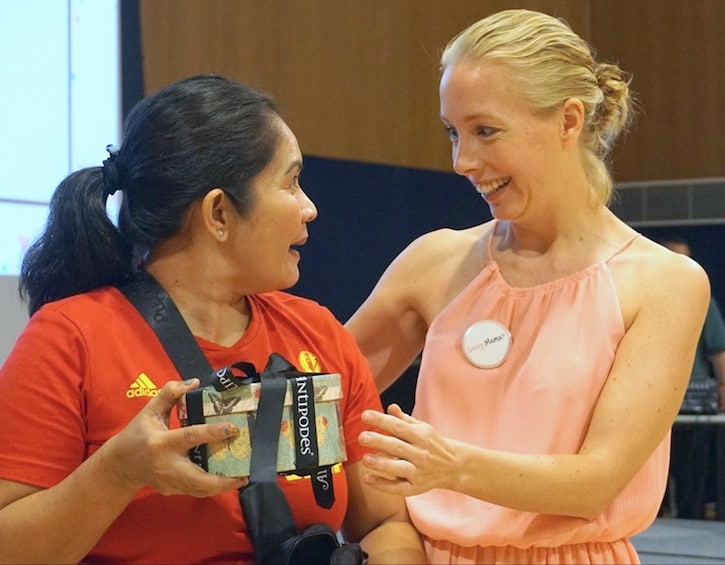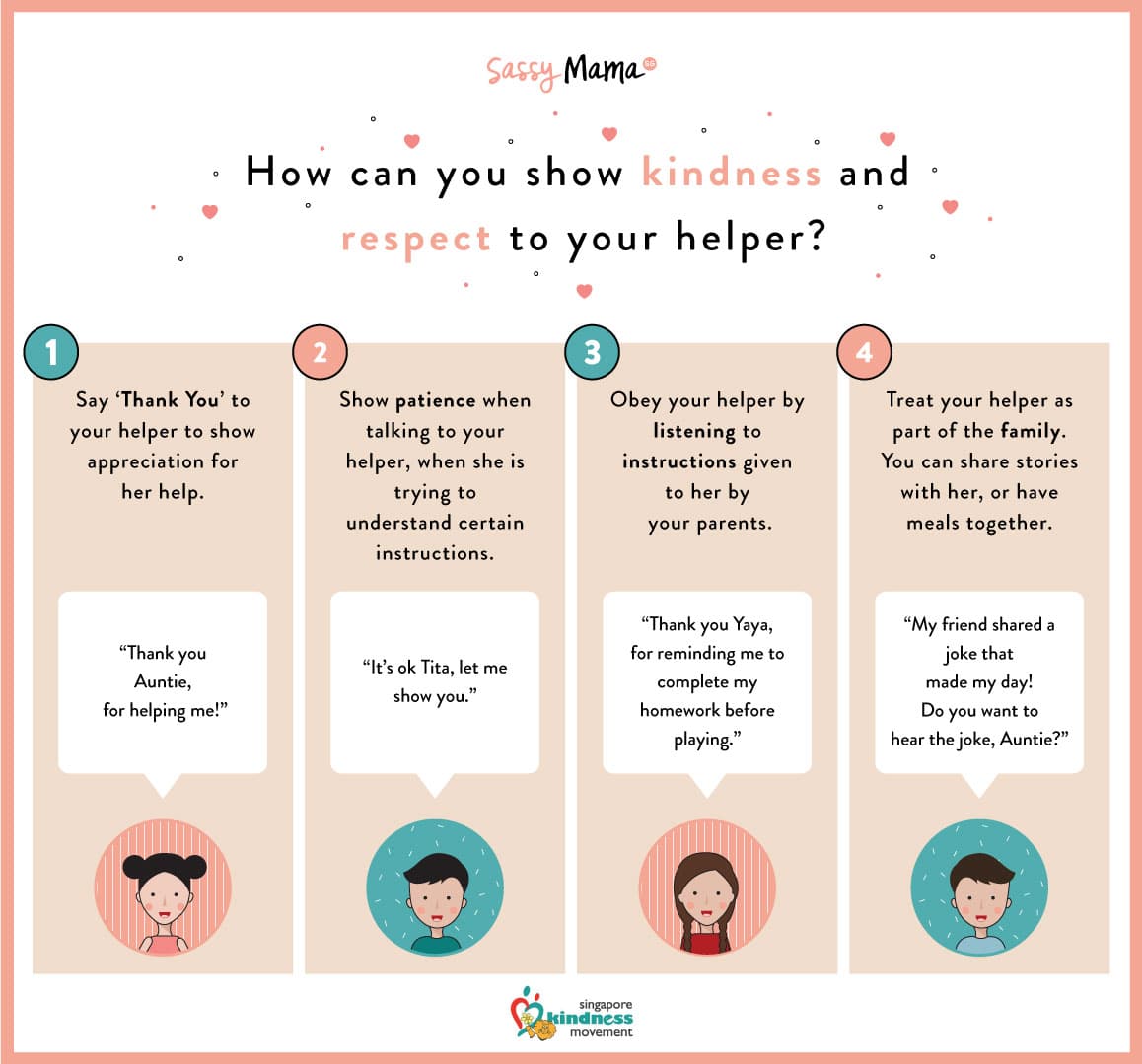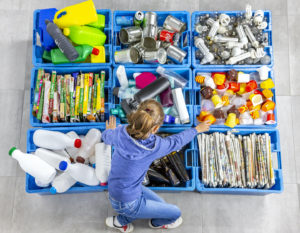
 Post Category - ChristmasChristmas
Post Category - ChristmasChristmasNeed help figuring out a gift for your helper? Gratitude might be the most important gift of all!
Looking for ways to appreciate your helper? I conducted an anonymous survey with domestic helpers asking “If you could choose anything, what’s one gift that you would like to receive from your employers at Christmas or on your birthday?” If you’re expecting the answers to be plane tickets home to visit their families, or maybe handbags or shopping gift cards, then think again. A remarkable number of them wrote in answers like “A simple thank you would be nice” or “Just feeling appreciated and not assuming bad things would be a gift to me”.
The best gifts of all are often the intangible ones. That’s not to say that your helper wouldn’t be thrilled to receive a tangible gift, so please do consider getting her one of those as well! But we could also consider those things which are truly valuable to our helpers (and to all of us, really!).
Read More: 11 Helper Gift Ideas
Simple Appreciation
Let’s take a moment to think about how we can add a bit more appreciation and positive assumptions into our daily/weekly interactions with our helpers. It can be easy to take for granted the many things our helpers do throughout each day, especially since most of their work is behind the scenes and they may have been doing the same tasks 365 times a year over multiple years, depending on how long they have worked for us. Here are a few ideas to show the gratitude that we have but may not always express:
Read more: Four ways kids can show gratitude to their helper (including a downloadable Thank You note!)
- Make a habit of looking your helper in the eye and saying “Thank You” at least one time each day. In our house, our “one time” is as she goes to bed. Your “one time” maybe when she puts the baby down to sleep or as she’s clearing the dinner plates. Pick a trigger to remind yourself to say a genuine “Thank you” once a day.
- If life gets busy and you aren’t home to acknowledge the various errands and tasks she’s done, send her a text to say, “Thanks for all your hard work with that playdate” or “Thanks for tidying up my wardrobe!”
- If you host playdates, dinner parties, or overnight guests in your home, consider sending her a few photos of the event (she may enjoy showing her family what her job entails). And if any of your guests compliment the appearance of your home or the deliciousness of the food, don’t forget to pass along the compliments.
TIP: Here’s what I’m not saying: You don’t need to thank your helper for everything. It could get annoying and may actually lose its meaning. Just like in our workplaces, we wouldn’t expect our boss to thank us for every email and phone call we make on the company’s behalf; BUT having regular reminders of our boss’ appreciation gives us an overall sense of validation and satisfaction in our jobs.
Read More: Celebrate Helper Appreciation Month with Sassy Mama
Positive Assumptions
It’s so easy to jump to negative conclusions, which can quickly erode the working relationship with our helper. Sadly, most frustrations are due to good intentions that were thwarted by a communication breakdown or mismatched expectations. Here’s a fact that is true of almost every profession and person in the whole world. Most people don’t purposely set out to try to make their employer mad at them. Therefore, we would do good to assume: “There must’ve been a good intention here.” What if our first assumption was that there must be a good reason why she was late to the bus or didn’t finish the laundry? Not in a naive, turn-a-blind-eye kind of way; but in a “let-me-pause-first-before-accusing” kind of way.
Read more: 5 Questions for Helpers That All Mamas Should Ask About Their Kids
Here’s how it can work:
- Did you get home and the ironing wasn’t done? START WITH: “I bet she had good intentions… maybe I forgot to tell her I needed the ironing done by tonight. Let me clarify to her…”
- Did your child’s school call to say your helper was late for pickup? START WITH: “I bet she had good intentions… maybe there was a transportation problem beyond her control. Let me ask her if she had any difficulties getting to school today…”
- Did you see her using the same cloth in the kitchen and bathroom? START WITH: “I bet she had good intentions… maybe her previous employer didn’t like for her to dirty multiple cloths. Let me share my preferences with her…”
We may find that many of our helper’s mistakes are rooted in cultural differences, or the way she was previously taught to do something, or in our own lack of clarity. So begin with a positive thought, and follow up with a question instead of a negative assumption.
Read more: ‘Family Favourites’: We Meet the Amazing Women Behind the Helper Cookbook
TIP: Here’s what I’m not saying: This isn’t to say that you shouldn’t address mistakes with your helper. Jumping to a positive conclusion is a good place to START, but it doesn’t need to end there. If there are things to resolve and changes to be made, the chances of the conversation going smoothly will increase with a gracious start.
I’ve encountered many employers and helpers who part ways due to feelings of under-appreciation or one-too-many misunderstandings or false accusations. Finding ways to avoid these working relationship traps doesn’t just benefit your helper, it benefits you and your family as well!
Let’s give each other the best gifts of all this season and start new habits of appreciation and jumping to positive conclusions. After all, the intangible things never go out of style.
Read More: 11 Gift Ideas for Your Helper






 View All
View All




 View All
View All









 View All
View All








